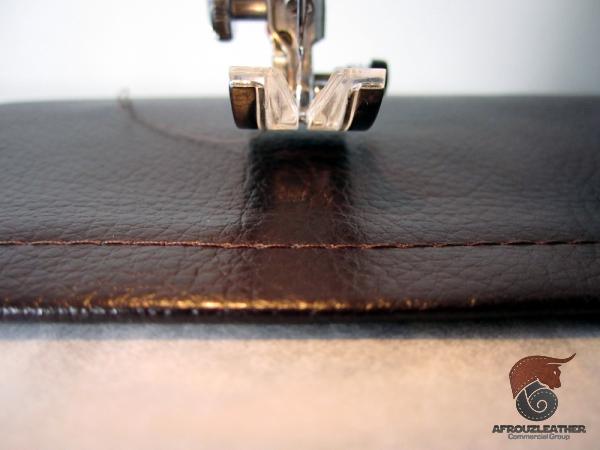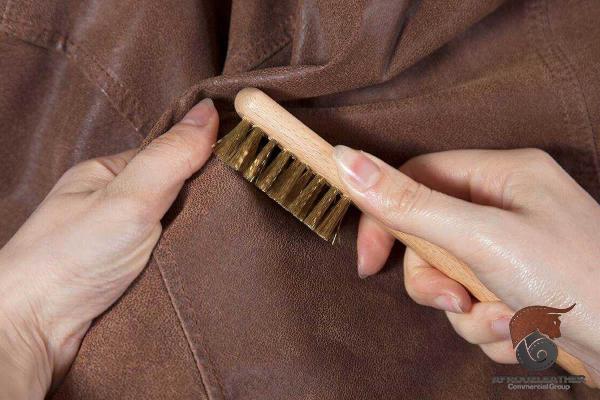Synthetic leather, also known as faux leather or artificial leather, is a popular alternative to genuine leather due to its cost-effectiveness, durability, and versatility. In recent years, South Africa has witnessed a growing demand for synthetic leather products, prompting the emergence of various suppliers in the market. This article provides an overview of the synthetic leather industry in South Africa, highlighting key suppliers and the growth prospects of this sector. 1. Growth of the Synthetic Leather Market in South Africa: – The demand for synthetic leather in South Africa has been fueled by factors such as changing consumer preferences, affordability, and an increasing focus on sustainable and eco-friendly materials. – South Africa’s growing fashion, automotive, and furniture industries have significantly contributed to the increased adoption of synthetic leather in the country.
leather
 2. Key Synthetic Leather Suppliers in South Africa: a) Gavin Collins (Pty) Ltd.: – Gavin Collins is one of the largest suppliers of synthetic leather in South Africa, offering a wide range of products for various industries. – The company focuses on providing high-quality, eco-friendly synthetic leather alternatives at competitive prices. – They work closely with clients to meet their specific requirements and offer customization options. b) Reliance Artificial Leather: – Reliance Artificial Leather is a renowned synthetic leather supplier in South Africa, catering to the automotive, upholstery, and fashion industries. – The company boasts a diverse portfolio of synthetic leather products, including leatherette fabrics for applications such as seating, bags, and garments. – They prioritize product quality, durability, and aesthetics to meet the expectations of their customers. c) Leatherworld South Africa: – Leatherworld South Africa specializes in the supply of synthetic leather for the fashion and upholstery sectors. – With a wide range of colors, textures, and finishes, the company offers innovative and trend-setting synthetic leather products.
2. Key Synthetic Leather Suppliers in South Africa: a) Gavin Collins (Pty) Ltd.: – Gavin Collins is one of the largest suppliers of synthetic leather in South Africa, offering a wide range of products for various industries. – The company focuses on providing high-quality, eco-friendly synthetic leather alternatives at competitive prices. – They work closely with clients to meet their specific requirements and offer customization options. b) Reliance Artificial Leather: – Reliance Artificial Leather is a renowned synthetic leather supplier in South Africa, catering to the automotive, upholstery, and fashion industries. – The company boasts a diverse portfolio of synthetic leather products, including leatherette fabrics for applications such as seating, bags, and garments. – They prioritize product quality, durability, and aesthetics to meet the expectations of their customers. c) Leatherworld South Africa: – Leatherworld South Africa specializes in the supply of synthetic leather for the fashion and upholstery sectors. – With a wide range of colors, textures, and finishes, the company offers innovative and trend-setting synthetic leather products.
Specifications of leather
 – They collaborate with designers and manufacturers to develop customized solutions and ensure customer satisfaction. 3. Factors Influencing Supplier Selection: a) Quality and Durability: – Synthetic leather suppliers in South Africa must prioritize the quality and durability of their products to meet the diverse needs of customers. – Material strength, resistance to wear and tear, and colorfastness are crucial factors affecting the selection of a supplier. b) Variety and Customization: – Suppliers offering a wide range of synthetic leather options, including different textures, colors, and finishes, are likely to attract more customers. – The ability to provide tailored solutions and customization options to accommodate specific design requirements is also essential. c) Eco-friendliness: – As sustainability gains prominence, synthetic leather suppliers that focus on eco-friendly alternatives are becoming more popular. – Manufacturers and consumers increasingly prefer suppliers that prioritize sustainability, recycling, and reduced environmental impact. 4. Challenges and Future Prospects: a) Price Competitiveness: – Synthetic leather suppliers in South Africa face the challenge of maintaining price competitiveness, as global market dynamics and fluctuating raw material costs impact their pricing strategies. – Sourcing cost-effective raw materials and streamlining manufacturing processes play a crucial role in overcoming this challenge.
– They collaborate with designers and manufacturers to develop customized solutions and ensure customer satisfaction. 3. Factors Influencing Supplier Selection: a) Quality and Durability: – Synthetic leather suppliers in South Africa must prioritize the quality and durability of their products to meet the diverse needs of customers. – Material strength, resistance to wear and tear, and colorfastness are crucial factors affecting the selection of a supplier. b) Variety and Customization: – Suppliers offering a wide range of synthetic leather options, including different textures, colors, and finishes, are likely to attract more customers. – The ability to provide tailored solutions and customization options to accommodate specific design requirements is also essential. c) Eco-friendliness: – As sustainability gains prominence, synthetic leather suppliers that focus on eco-friendly alternatives are becoming more popular. – Manufacturers and consumers increasingly prefer suppliers that prioritize sustainability, recycling, and reduced environmental impact. 4. Challenges and Future Prospects: a) Price Competitiveness: – Synthetic leather suppliers in South Africa face the challenge of maintaining price competitiveness, as global market dynamics and fluctuating raw material costs impact their pricing strategies. – Sourcing cost-effective raw materials and streamlining manufacturing processes play a crucial role in overcoming this challenge.
buy leather
 b) Consumer Awareness and Perception: – Educating consumers about the benefits and eco-friendly nature of synthetic leather is important for increasing its acceptance in South Africa. – Addressing misconceptions and demonstrating the quality and durability of synthetic leather products can help overcome resistance to its use. c) Technological Advancements and Innovation: – The synthetic leather industry in South Africa is expected to witness growth through technological advancements, such as the development of improved manufacturing techniques and innovative materials. – Innovation in surface finishes, textures, and patterns can help suppliers differentiate their products and cater to evolving consumer preferences. Conclusion: The synthetic leather industry in South Africa has experienced significant growth, driven by factors like changing consumer preferences and the demand from various industries. Suppliers like Gavin Collins (Pty) Ltd., Reliance Artificial Leather, and Leatherworld South Africa have emerged as key players in the market, focusing on quality, customization, and eco-friendliness. Overcoming challenges related to price competitiveness and consumer perception while embracing technological advancements and innovation will be crucial for the sustained growth of synthetic leather suppliers in South Africa.
b) Consumer Awareness and Perception: – Educating consumers about the benefits and eco-friendly nature of synthetic leather is important for increasing its acceptance in South Africa. – Addressing misconceptions and demonstrating the quality and durability of synthetic leather products can help overcome resistance to its use. c) Technological Advancements and Innovation: – The synthetic leather industry in South Africa is expected to witness growth through technological advancements, such as the development of improved manufacturing techniques and innovative materials. – Innovation in surface finishes, textures, and patterns can help suppliers differentiate their products and cater to evolving consumer preferences. Conclusion: The synthetic leather industry in South Africa has experienced significant growth, driven by factors like changing consumer preferences and the demand from various industries. Suppliers like Gavin Collins (Pty) Ltd., Reliance Artificial Leather, and Leatherworld South Africa have emerged as key players in the market, focusing on quality, customization, and eco-friendliness. Overcoming challenges related to price competitiveness and consumer perception while embracing technological advancements and innovation will be crucial for the sustained growth of synthetic leather suppliers in South Africa.

Your comment submitted.